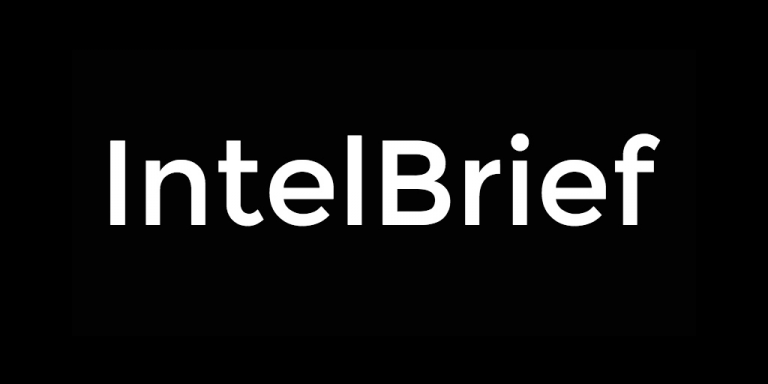INTELBRIEF
June 12, 2017
TSC IntelBrief: The Trump Doctrine in the Gulf

• The ongoing crisis between the Saudi-led coalition and Qatar is a lose-lose situation for regional stability, as well as U.S. interests in the region.
• Having already inserted itself into the Sunni-Shia sectarian rivalry in the region, the U.S. has now jumped into a Sunni-Sunni rivalry in the Gulf.
• The contradictory statements made by the White House and senior U.S. officials have damaged immediate efforts to mitigate the crisis and present longer-term challenges.
• Turkey and Iran both stand to gain in terms of soft power influence in the region at the expense of Saudi Arabia and the UAE.
The ongoing crisis between the Saudi-led bloc of Gulf states and Qatar has the very real potential to bring about unintended consequences for all parties involved. Less than a month ago, U.S. President Donald Trump traveled to Riyadh, where he delivered a speech intended to solidify the Sunni bloc of Gulf states against Iran. Rather than uniting, the Gulf bloc is now more divided than it has been in decades. Saudi Arabia has made good on its threat to cut off food supplies to Qatar, and Iran and Turkey are now flying in needed food shipments to the country. It is difficult to assess the evolving crisis as anything other than an entirely avoidable debacle with limited upside but tangible downsides for all parties involved.
For the U.S., the situation is partially a self-inflicted wound with no upside. The U.S.-Qatar relationship, like every relationship in the region, is one where both parties maximize areas of common interest and seek to minimize and mitigate areas of contention. The Al Udeid Airbase in Qatar is among the largest and most important military installations that the U.S. and coalition forces use in the Middle East, most importantly in the air campaign against the Islamic State. Doha is also the home to a considerable cultural base of U.S. universities and academic institutions, such as Georgetown University, Carnegie Mellon, and Texas A&M, as well as numerous U.S. companies. Tweets by President Trump—which have become the most frequent official statements made by the White House—have directly contradicted efforts by senior U.S. officials such as Secretary of Defense Jim Mattis and Secretary of State Rex Tillerson, who have advised the Gulf countries to engage in dialogue and tamp down tensions. President Trump’s Rose Garden denunciation of Qatar as a ‘high level’ state sponsor of terrorism was made just as Tillerson was working to get Saudi Arabia to lift its blockade on Qatar. Having already jumped directly onto the Sunni side of the Sunni-Shia rivalry that has long been exploited by Saudi Arabia and Iran, the White House has now injected itself into a brewing Sunni-Sunni rivalry in the Gulf by giving the appearance of siding with Saudi Arabia. It is worth noting that the U.S. has had the same concerns with Saudi Arabia regarding terror financing and toleration of violent extremist ideology as President Trump has now criticized Qatar for.
Though Saudi Arabia may gain some concessions from Qatar through its efforts to pressure Doha, any potential gains will come at the price of deepening Sunni Arab rivalries and increased Turkish and Iranian influence in the region. For the United Arab Emirates (UAE)—part of the Saudi-led bloc against Qatar—there may be some damage to Dubai’s standing as the region’s neutral financial center, where there is a great deal of Iranian investment as well. For Qatar, there is certain to be economic damage, as well as damage to how Doha views the U.S. role in the region. Qatar will not suddenly leave the Gulf Cooperation Council (GCC) to forge closer ties with Iran; its ties with the other GCC members are far deeper than the cooperative ties it has with Iran over natural gas fields the two countries share. Still, Doha and Tehran will maintain an effective working relationship despite the objections of Riyadh and Abu Dhabi; the sight of Iranian planes bringing in tons of fruits and grains to help alleviate the disruption in food supplies to Qatar caused by the Saudi blockade is unlikely to be the result Riyadh and its allies intended—and Iran is sure to exploit the issue.
Though further escalation is still possible, it is unlikely that the situation will continue to deteriorate much further. All sides may now have enough reasons to seek a diplomatic solution to the rift. Qatar will likely have to make some concessions, though it is unclear how far it would be willing to go over certain issues of contention, as well as how far Doha can go with a foreign policy that is relatively independent of Saudi Arabia. What is more clear, however, is that the role of the U.S. as a guarantor of relative stability in the Gulf has diminished. The ad hoc and impulsive nature of some of the statements coming from the Trump administration only make an already complicated situation worse.
.
.
.
For tailored research and analysis, please contact: info@thesoufancenter.org
.